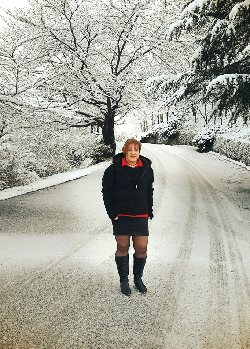Freedom is defined as the absence of necessity, coercion or constraint in choice or action. It is also defined as a lack of restraint, or having no boundaries. Given this definition, many of the places we use the word freedom or the sense of being free are much misused. People use the word freedom to describe everything and to use as an excuse or reason behind many terrible things they do. In an everyday job people often dream of the freedom to escape from the troubles of life.

One important aspect of freedom is that when another person’s freedom begins, yours ends. Freedom of speech, Freedom of religion, freedom from fear and freedom in relationship are the four essential freedoms exercised in Western countries, each one as important as the next. In such a statement, it can nearly be assumed that this privilege would be granted to every man and woman walking on the earth. However, such a fantasy could never be achieved without struggle, restrain, desire, dreams, and tears.
Let’s have a look at the freedom in relationships
Freedom, to me, is the cornerstone of human relations. Freedom is the open space in which true love can prevail. I believe it happens in the hearts of those who dare to fall in love. But some people take freedom lightly, and some people value freedom greatly. Whether you believe in having more freedom or more commitment in intimate relationships, desire is involved, and it’s a heart-to-heart matter. When we look at the whole range of emotions we’re capable of — passion, anger, jealousy, aggression, anxiety, fear, and so on- the one that stands out the most and marks our whole lives is desire. There’s nothing new in this. This human world we live in was called “the desire realm” by the ancients of Asia, including Buddha Shakyamuni, because desire was seen as our most fundamental emotion. Since Freud, Western psychologists, too, have recognized the central role of desire in human life. Freud even saw it as the primary “drive” behind our behaviours. Our desire may be to help others, to create something of transcendent beauty, or to realize union with God. It may simply be to find a perfect love in our life. Or we may desire success, wealth, fame — the usual suspects. Whatever it is, in its purest form, that desire in itself is neither positive nor negative. Yet it can become either, depending on how we work with it. So it’s really up to us — how we handle our desire determines whether it will bring us happiness and joy or suffering and pain. And of course, how we handle it has a lot to do with our habitual patterns. It’s very important to pay attention to our conditioning and habitual tendencies around desire. Maybe your other half likes to watch “Will & Grace” reruns, and you can’t stand that show. You should respect your partner’s freedom, needs, and preferences. Yet, at the same time, the two halves that are joined together are clearly united, and so each has some responsibility for the health of the relationship and for the other person’s welfare and happiness. It’s not like you’re fully free to do whatever you want. You have some responsibility towards the half of your partner that’s joined to you, but you don’t have to try to control and change the half that’s not.
So we need some balance between autonomy and commitment, between individual space and shared bonds. Commitment is very good because it helps us to not go wild, to not lose all sense of self-discipline or mindfulness of our speech or actions. But respecting individual space is also very important. Otherwise we become possessive and controlling, which is not healthy. If the relationship is too tight, both partners feel suffocated. But if it’s totally loose and there’s no sense of commitment or discipline, no awareness of common ground, then there is no real heart connection. And that’s what a relationship is: a heart-to-heart exchange. But the most important question is “Do you really want to give up your freedom for commitment?”
With all the joys and freedom of being single, when we date that one person that we like more than anyone else and who seems to put up with our nonsense, we can’t help but want commitment. The experience, the freedom of an unattached lifestyle seems like an empty vessel that makes the most noise. From my experience, we all are bonded with emotional freedom and because of that emotion we have constant awareness of now. No matter where we are our mind may be caught up in some form of worry about someone or something.
But is there any limitation to the freedom we claim?
One type is true freedom which is to be free from all habits, good and bad, doing what you believe you should do to be good, not just acting from an automatic unconscious habit of being good, and because you have the will power to be good, even in the face of strong temptation. There are good habits and bad habits, but true freedom is release from both, so in a sense good habits are bad, because they bind us. I strongly believe that true freedom means the power to act using wisdom rather than compulsive desires and habits. The true freedom comes from being guided by your wisdom and experience and without true freedom, your life is ruled by impulse, whims, moods, habits, and environment.
Without the security and trust that comes with close relationships, our need for connection and intimacy gets neglected. In the best and most fulfilling relationships both partners feel respected, trusted, loved and free. The key to creating such a relationship lies in each partner becoming secure and self-accepting within his or her own skin. While this idea may seem unrealistic, if not impossible to some, there are many couples who are living proof that freedom and love can coexist simultaneously. Love without freedom soon devolves into resentment, and freedom without love results in loneliness and isolation.
The ‘dance’ of love and freedom allows us to open our heart and experience deep intimacy without clinging or trying to control each other.
How do you protect your freedom if you ever had one?!
I have understood that the outer self is the reflection of the inner self in order to alter my external circumstances, my inner being has some exploration to do. I must then start exploring internally and ask myself some crucial questions like, “what is going on?” and “why are things not flowing as they should?” It is a fairly intense period of internal investigation where a number of lies can be uncovered which one had been telling oneself. Lies which are keeping one from moving forward. The very first lie that we tell ourselves is that “we are not free”, and “there is not much space for freedom”. But I realized that there is freedom and it’s never curtailed. In every circumstance, every environment, freedom exists.
The second lie is “we need to find a partner who is conscious, who is free so that I might be free”. Same story, different guise. That my freedom is somehow dependent on the people around me. But I realize that my partner’s definition of freedom is irrelevant to my experience of freedom. He can be any way he chooses. When I stay connected to my core, to the truth in my being, I can let people be exactly as they are. Free or otherwise. That was the most freeing realisation of them all. That I needed nothing from another. That I could enter into a relationship with no expectation of it filling something within me. With no expectation of it propping me up in some way.
The final lie is that, “we don’t know how to be free in a relationship”. At this point, we keep doing the same routine and following old patterns of falling off the freedom wagon, or getting caught in other people’s drama or letting other people’s way of being affect our own. Well, frankly speaking, it is easy to stay true and connected to our commitment to freedom and pay great amounts of respect to the partner. Knowing that the external circumstances of our life are wonderful but they don’t define us. If they left tomorrow, I would still be free.
Relationship and freedom? Yes, of course they can walk hand in hand.

